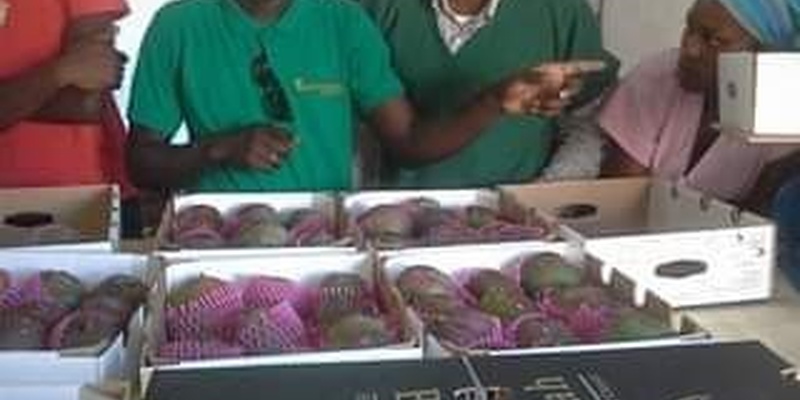The STDF acknowledges recent successes: a new suite of phytosanitary guides and a Phytosanitary Capacity Evaluation PCE) that led to funding
Posted on Thu, 11 Apr 2019, 07:11

Fresh mangos ready for export from Guinea. After a Phytosanitary Capacity Evaluation (PCE), Guinea developed a National Phytosanitary Development Strategy which led to additional funding. ©Mamadouba Camara
15 March 2019, Geneva - The Standard Trade and Development Facility (STDF) working group met to discuss progress made on its work plan, review grant applications, start the process of updating the STDF strategy and discuss ways to improve border services while ensuring safe trade.
The results of the evaluation of the IPPC Secretariat s implementation of the STDF 350 project (Production of IPPC Guides and training materials) were presented. There was general agreement that an innovative method of engaging experts was used to produce a suite of phytosanitary guides to be used by countries. However, more effort needs to be made to ensure stakeholders are aware of what is available; and to make the resources easier to access online at: https://www.ippc.int/en/core-activities/capacity-development/guides-and-training-materials/
Mr Brent Larson from the IPPC Secretariat responded by saying:
We are glad to see that the STDF working group recognized the valuable contribution that this suite of IPPC Guides makes in helping NPPOs. We will review the findings of this evaluation and enlist the help of the Implementation and Capacity Development (IC) to put in place a plan to address any concerns.
Several applications for project funding were reviewed. In particular, Guinea s proposal for enhancing their phytosanitary system - focusing on banana and mango exports - was approved. This project was a joint effort with the country and supported by Europe-Africa-Caribbean-Pacific Liaison Committee (COLEACP).
The project was designed based on the outcome of a Phytosanitary Capacity Evaluation (PCE) which had helped the country develop a National Phytosanitary Development Strategy. The Strategy helped Guinea and COLEACP put together a solid grant application that was readily approved. A real success story for the PCE!
The STDF Secretariat also facilitated a meeting of representatives from organizations that oversee the evaluation of SPS systems: FAO for food safety, OIE for animal health and the IPPC Secretariat for plant health with representatives from the World Bank (WB). Ways to help improve border services to help facilitate safe trade in accordance with the Trade Facilitation Agreement were discussed. The WB has several national projects that help improve border services and was seeking input to improve processes.
The representatives from FAO, OIE and IPPC Secretariat emphasized that the main way to ensure national systems are evaluated properly was to use tools produced by: FAO (as part of the Risk Based Importer Food Control Manual), the IPPC Secretariat (Phytosanitary Capacity Evaluation) and the OIE (Performance of Veterinary Services); as well as having trained facilitators conduct meetings. They also emphasized the importance of not duplicating efforts or creating competing tools. The WB agreed to document their progress and share their findings. Everyone agreed to continue discussions as needed.

